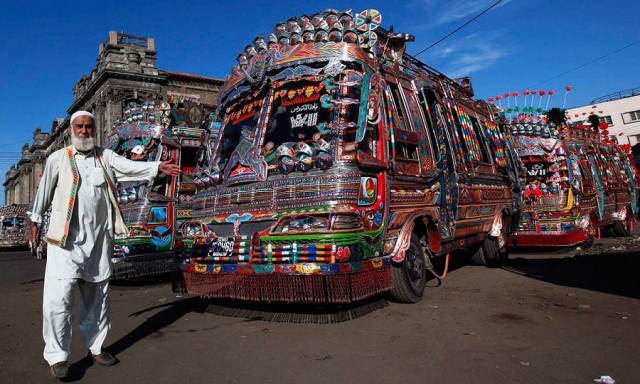Transport fares continue to rise
Cost of essential items also skyrocket following latest fuel price hike

Transport fares soared for the second time in less than a month in the Rawalpindi district on Friday as prices of petrol and diesel cruised past the psychologically significant Rs300 mark.
It was a double whammy for citizens of the garrison city as the increase in transport fares, due to fuel prices, was followed by an increase in the prices of essential commodities.
The prices of all vegetables have exceeded Rs200 per kg, while pulses surpassed Rs500 per kg. Notably, chicken prices have seen a substantial increase of Rs30 per kg. This surge in prices has been attributed to the recent spike in petroleum product prices, with petrol now priced at Rs306 per litre and diesel at Rs312 per litre.
Meanwhile, commuters said that passengers unwilling to pay the increased fares on buses were offloaded by transport service providers.
Additionally, railway and metro bus fares have also seen an uptick in fare. In response, citizens are reverting to bicycles or sharing motorcycles to cope with the escalating costs.
Petrol pump owners, however, are celebrating the substantial surge in petrol and diesel prices anticipating huge profits on their existing stocks.
Meanwhile, stop-to-stop fares have increased to Rs50, while Qingqi rickshaws have raised fares by Rs15 per passenger. Motorcycle-based ride-hailing service providers have followed suit, increasing fares by Rs50. The fare for journeys originating from Rawalpindi’s Raja Bazaar to surrounding areas has surged from Rs80 to Rs100, while long-route transporters are now charging for luggage equivalent to one passenger’s fare.
Pick-and-drop services for schools and offices have seen their fares rise by Rs500 for the second time this month. On Friday, pick-and-drop service providers issued notices to parents, informing them of the fare hike, with all increased fares expected to be paid by Monday. A warning was issued, stating that children would not be transported if the fare was not paid by Monday morning.
Local transporters in Rawalpindi have increased fares for various routes originating from Raja Bazaar’s Fawara Chowk. A journey to the Kutchery district from the said point now costs Rs80, to Morgah Rs100, to Sihala Rs110, and to Chakri Rs120. The fare to go to Adiala Jail from Kutcheri has soared to Rs100.
Amidst the price hike frenzy, the Regional Transport Authority (RTA) has not taken any action against the transporters for increasing fares.
Meanwhile, the federation of transporters has submitted a request to the RTA to promptly issue a fare hike notification, citing the continuous escalation in the prices of petrol, diesel, vehicle spare parts, and tyres.
The federation’s vice president, Asif Khan, said transport hubs were witnessing fewer passengers, and vehicles were not running at full capacity.
He claimed transporters business were operating at a loss with costs having tripled.
Goods transport
The prices of essential commodities including pulses, vegetables, cooking oil, rice, meat, and powdered milk have skyrocketed in the wake of the latest hike in the prices of petroleum products.
Most of the goods transporters in Rawalpindi rely on diesel-powered vehicles, including mini-trucks, dumpers, locally known as Shehzor, and tractor-trolleys.
After the increase in diesel prices, these transporters have raised fares by Rs1,000 for distances ranging from one to ten kilometres. This has led to a total fare increase of Rs4,000 to Rs5,000, calculated based on the weight and volume of the cargo.
Yasir Majid, a transporter, pointed out that the continuous increase in petroleum product prices has left them with no choice but to pass on the additional costs to consumers. He also indicated that there is a possibility of further fare hikes in goods transportation due to rising fuel prices.
Mohammad Sajid, a poultry vendor, expressed concern about the significant price increases for poultry products and essential food items. He said the prices of all pulses have exceeded Rs500 per kg, and vegetable prices are now well above Rs200 per kg.
Additionally, chicken meat has reached Rs630 per kg, with milk and yogurt prices seeing a Rs10 per kg increase.
The recent surge in petroleum product prices has led to significant economic challenges for both traders and consumers, with many feeling the pinch of rising costs.
Published in The Express Tribune, September 2nd, 2023.


















COMMENTS
Comments are moderated and generally will be posted if they are on-topic and not abusive.
For more information, please see our Comments FAQ